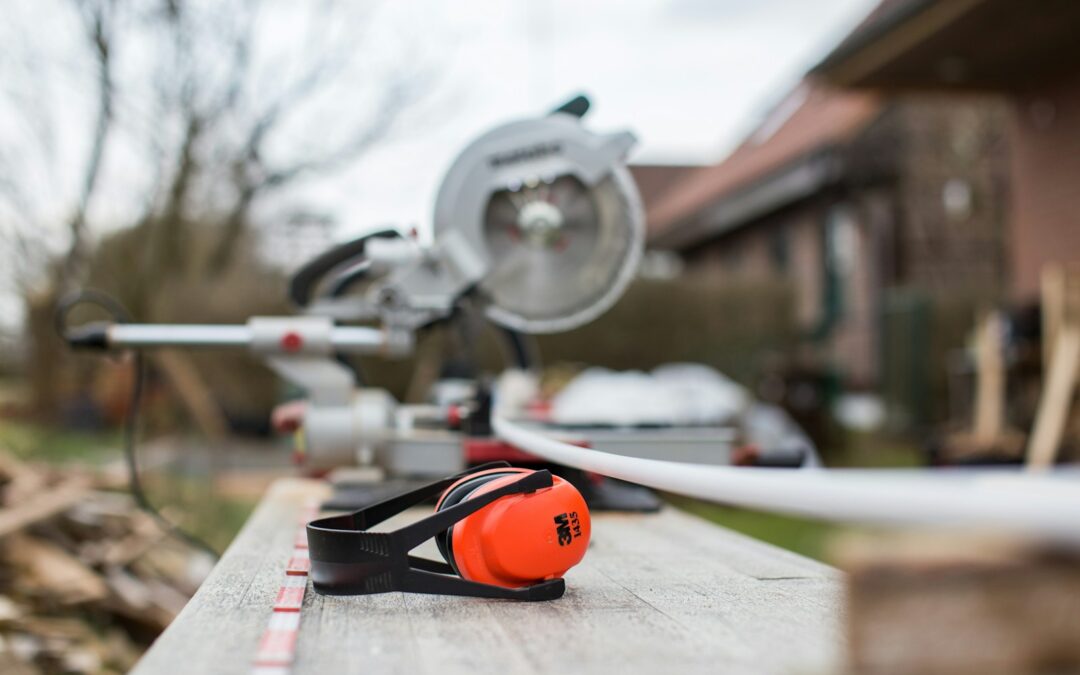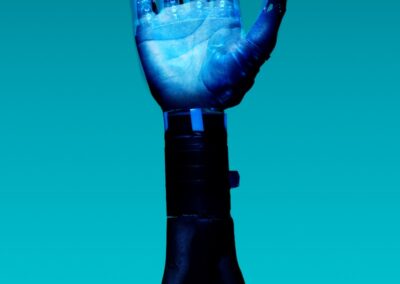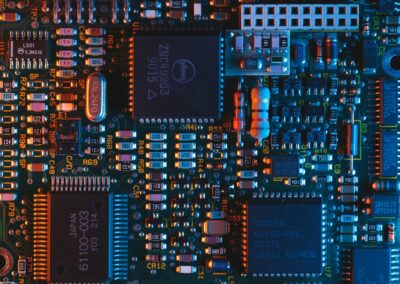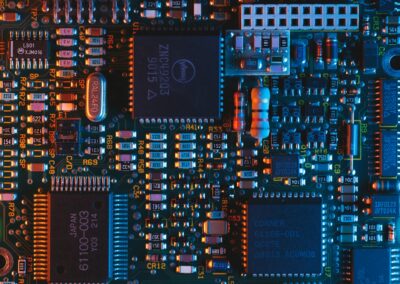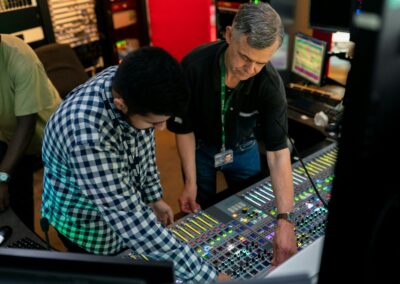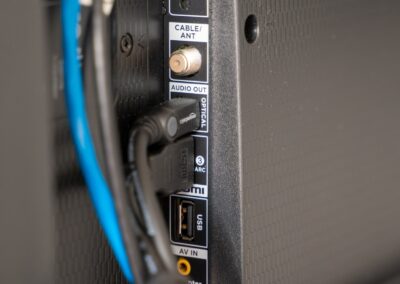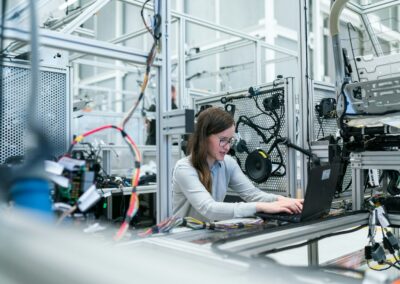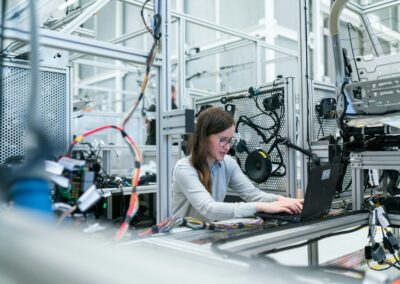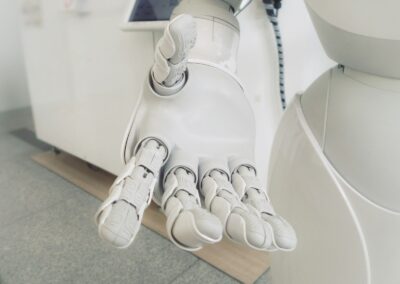Understanding the Challenges of Integrating Digital Twin Technology in Construction
Technical and Operational Challenges
The integration of digital twin technology in construction is transforming the industry by providing real-time virtual representations of physical assets. However, integrating this advanced technology into existing construction practices poses significant technical and operational challenges. One major challenge is the compatibility of digital twin systems with current construction tools and software. Many construction companies in Saudi Arabia and the UAE, regions known for their rapid adoption of innovative technologies, face difficulties in aligning new digital twin systems with their legacy infrastructure.
Additionally, the complexity of construction projects demands a seamless flow of data between various stakeholders, including architects, engineers, and contractors. Ensuring interoperability and data consistency across different platforms remains a significant hurdle. Overcoming these challenges requires a comprehensive strategy that includes upgrading existing systems, training personnel, and fostering collaboration among all parties involved in the construction process.
Data Management and Security Concerns
Another challenge in integrating digital twin technology in construction is managing the vast amount of data generated. Digital twins rely on continuous data input from sensors, drones, and other IoT devices to create accurate virtual models. Handling this data efficiently and securely is crucial. Construction companies in Riyadh and Dubai must implement robust data management systems that can store, process, and analyze large datasets in real time.
Moreover, data security is a critical concern. As digital twins store sensitive information about building designs, construction schedules, and material specifications, protecting this data from cyber threats is paramount. Companies must invest in advanced cybersecurity measures to safeguard their digital assets and ensure the integrity of their digital twin models. Implementing blockchain technology can also enhance data security by providing a tamper-proof ledger for recording all transactions and changes in the digital twin system.
Cultural and Organizational Resistance
Cultural and organizational resistance to adopting new technologies can impede the integration of digital twin technology in construction. Many construction firms have established practices and workflows that may resist change. In Saudi Arabia and the UAE, where traditional construction methods are deeply ingrained, convincing stakeholders to embrace digital transformation can be challenging.
Overcoming this resistance requires a shift in mindset and a commitment to continuous learning. Executive coaching services can play a vital role in this process by helping leaders understand the benefits of digital twin technology and guiding them through the transition. By promoting a culture of innovation and encouraging open communication, construction companies can ease the adoption of digital twin technology and drive successful integration.
Solutions for Seamless Integration of Digital Twin Technology
Strategic Planning and Phased Implementation
To integrate digital twin technology effectively, construction companies must develop a strategic plan that outlines the goals, timelines, and resources required for implementation. A phased approach can help manage the transition more smoothly, allowing companies to gradually incorporate digital twin systems into their existing workflows. This method reduces the risk of disruptions and enables teams to adapt to new processes incrementally.
Incorporating pilot projects can also be beneficial. By testing digital twin technology on smaller projects, companies in Riyadh and Dubai can identify potential issues and refine their integration strategies before scaling up. This approach allows for continuous improvement and ensures that the technology is optimized for larger, more complex projects.
Investing in Training and Skill Development
Training and skill development are crucial for the successful integration of digital twin technology in construction. Employees at all levels must be equipped with the knowledge and skills to operate and maintain digital twin systems. In Saudi Arabia and the UAE, where the construction industry is rapidly evolving, investing in training programs is essential to stay competitive.
Partnerships with technology providers and educational institutions can provide valuable training resources. By offering workshops, seminars, and certification programs, companies can ensure that their workforce is proficient in using digital twin technology. Continuous professional development fosters a culture of learning and innovation, enabling construction firms to leverage digital twin technology to its full potential.
Leveraging Advanced Technologies
Integrating digital twin technology with other advanced technologies such as AI, generative AI, and the Metaverse can enhance its capabilities and provide more comprehensive solutions. AI algorithms can analyze data from digital twins to predict maintenance needs, optimize construction schedules, and improve resource allocation. Generative AI can assist in designing more efficient and sustainable buildings by generating multiple design options based on specific criteria.
The Metaverse, a virtual reality space where users can interact with digital representations of physical objects, can also play a role in construction. By creating immersive virtual environments, construction companies can conduct virtual walkthroughs, simulate construction processes, and collaborate with stakeholders in real-time, regardless of their physical location.
In conclusion, integrating digital twin technology in construction presents both challenges and opportunities. By addressing technical, operational, and cultural barriers, and leveraging advanced technologies, construction companies can successfully adopt digital twins to enhance project management, improve efficiency, and drive innovation. With strategic planning, continuous training, and a commitment to embracing digital transformation, the construction industry in Saudi Arabia, the UAE, and beyond can harness the full potential of digital twin technology.
—
#DigitalTwins #ConstructionIntegration #SaudiArabiaConstruction #UAEConstruction #RiyadhSmartCities #DubaiConstructionTechnology #AIinConstruction #BlockchaininConstruction #MetaverseInConstruction #ExecutiveCoaching #GenerativeAI #ModernConstructionTechnology #BusinessSuccess #LeadershipInConstruction #ProjectManagement

